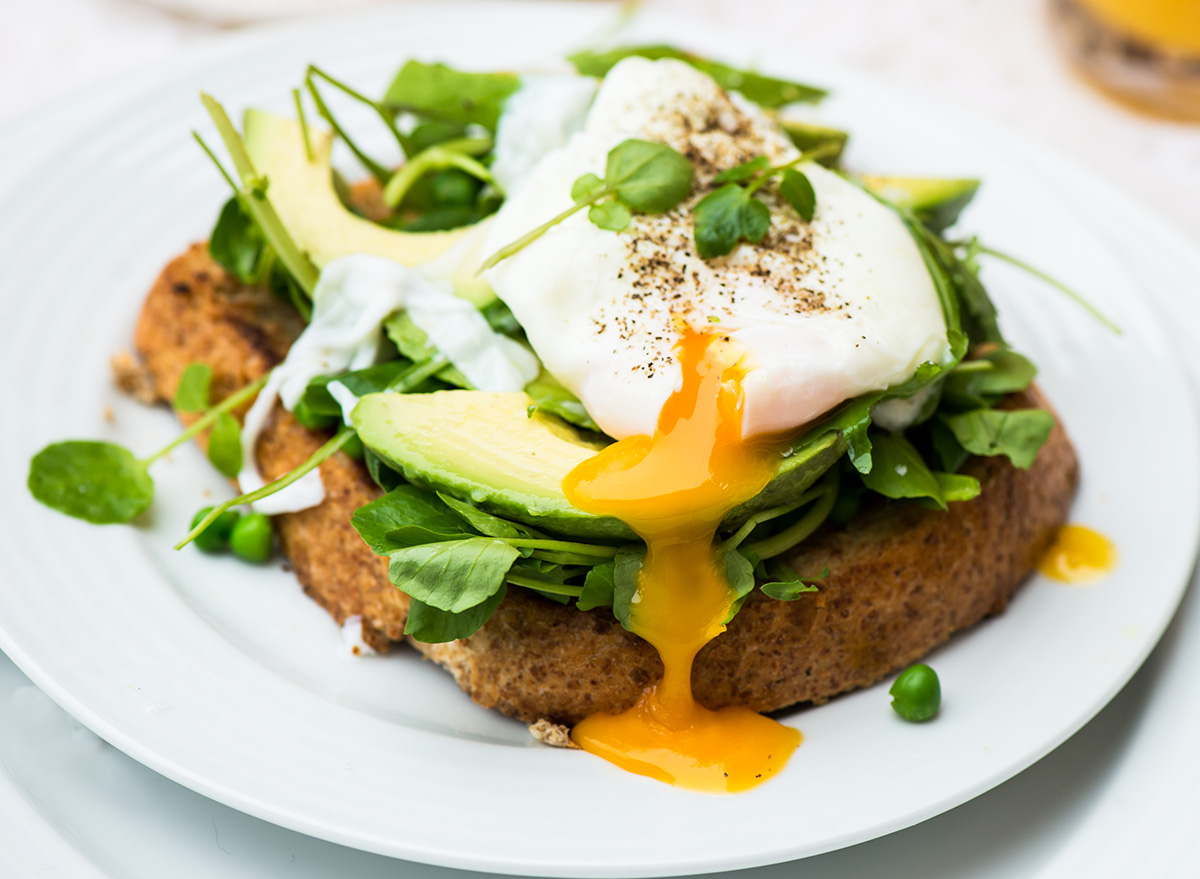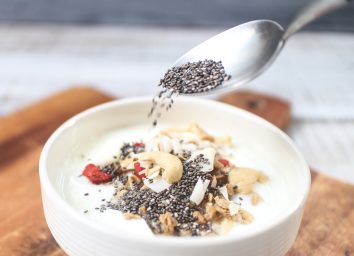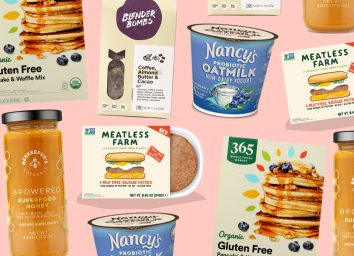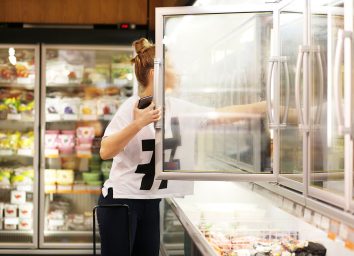The #1 Best Breakfast To Have if You’re Trying To Lose Weight

Cinnamon-sugar covered donuts and crumbly blueberry muffins do sound like a delicious breakfast to have in the morning. But we all know that when it comes to losing weight, having these high-sugar breakfasts on the regular won’t help in reaching our weight loss goals. So what is the best breakfast for weight loss? Don’t worry, you won’t have to eat the same thing over-and-over. In fact, you can get creative it, because the best breakfast to lose weight must contain a complex carb, healthy fat, protein, and fiber.
According to Maggie Michalczyk, RDN and founder of Once Upon A Pumpkin, who recently published The Great Big Pumpkin Cookbook, having these key nutrients on your breakfast plate will help you to finally lose the weight you’ve always wanted to get rid of. Here’s why, and for more healthy eating tips, be sure to check out our list of 21 Best Healthy Cooking Hacks of All Time.
Eating breakfast—not skipping it—leads to weight loss.
First, Michalczyk says it’s important to make sure you actually eat breakfast—despite what others may tell you.
“Skipping breakfast is not a good strategy to lose weight,” says Michalczyk. “Often trying to save calories by skipping breakfast leads to overeating later in the day or snacking on less nutritious items all morning long.”
Instead, Michalczyk recommends for eaters to find ways to incorporate those key nutrients in their morning meals—complex carbs, healthy fat, protein, and fiber.
“These things will help keep you fuller for longer, help prevent mindless snacking, and help set the tone for your meals and snacks the rest of the day,” says Michalczyk. “Studies have even shown that people who ate a bigger breakfast tended to weigh less, so don’t fear eating a substantial breakfast. You’ll also feel energized and ready to tackle a workout or a project better when fueled up properly.”
Plus, by eating breakfast in the morning and fueling your body, you’ll be less likely to mindlessly munch on a snack later. However, if you’re not properly giving your body those calories, it will start to crave quick energy to fix that hunger—which will lead to eating those not-so-great foods.
“Eating less during the day tends to lead to reaching for less healthy snacks at night,” says Michalczyk. “Balanced meals and snacks throughout the day is the best way to make sure you don’t end up famished at night looking to eat anything [and] everything in sight which can help keep you on track with your workout journey.”
How to look for these nutrients in your meals
While it may seem simple to have complex carbs, healthy fats, protein, and fiber, it can be difficult to find what to cook that contains all of these particular nutrients.
Complex carbohydrates are carbs that haven’t been stripped of their natural fiber and starch, which is usually what we see in simple carbs like white bread and pastries. Complex carbs have longer chains of sugar molecules, which takes a longer period of time for your body to digest and break down the energy—making you feel full for longer. Some great examples of complex carbohydrates include whole-grain bread and tortillas, as well as whole-grain foods like oatmeal, quinoa, barley, and brown rice. Starchy vegetables (potatoes, squash, corn) and legumes (chickpeas, beans, lentils) are also in this category.
Next is healthy fats. Despite the negativity you may have heard around fats growing up, having fat in your diet is actually good. Look to add unsaturated fats to your meals, which can help decrease your “bad” LDL cholesterol and increase your “good” HDL cholesterol. Plus, unsaturated fats will move through your body slowly, helping you to feel full. These fats can include avocado, nut butter, nuts, seeds, and even some oils. Including a little cheese in your scrambled eggs or enjoying a 2% fat Greek yogurt will also help with fullness.
Protein is probably one of the easiest nutrients to add to your breakfast, given that a lot of breakfast foods do include it. Eggs are a great example (each egg gives you 5 whopping grams of protein), as well as Greek yogurt, turkey bacon, cottage cheese, and chicken sausage. Nut butter can also provide your meals with some protein.
Lastly, you need fiber. Typically if you’re putting together a breakfast plate that includes the first three macronutrients—complex carbs, healthy fats, and protein—you’ll likely already have some kind of fiber element in it. However, for an extra boost of fiber, you can always add a side of fruit or throw in some extra vegetables to your egg scramble. Raspberries are actually the best fruit to have, providing your meal with 8 grams of fiber with a simple cup of berries!
Easy breakfasts you can throw together to lose weight.
Yes, you should eat breakfast, but the type of breakfast is as important. One study by the British Journal of Nutrition showed that eating breakfast at home was actually a benefactor in overall weight management. And another study by the University of Washington School of Public Health shows that actually cooking your breakfast at home instead of grabbing something on-the-go is a lot healthier due to the significantly fewer calories in your home-cooked meals.
Michalczyk gave a few examples of the best breakfast you can have if you’re trying to lose weight, which includes all of those nutrients at once. You can have:
- Egg and avocado on sprouted bread
- Green smoothie with greens, fruit, nut butter, and protein powder
- Oatmeal with nut butter, and berries
- Greek yogurt (low sugar, high protein) with raspberries & chia seeds
- Egg wrap with greens, cheese, and salsa
However, if the convenience of having something on-the-go is what you need, you can always prep a few breakfasts that you can snag in the morning as you’re heading out the door. A few options can include:
- Protein pancakes with a side of berries
- Peanut butter overnight oats with raspberries
- Chia seed pudding cups with Greek yogurt, fruit, and nuts
- Mini egg quiches with a side of sprouted bread
And if you have a little time on the weekend, you’ll also love checking out our list of 91+ Best Healthy Breakfast Recipes.








